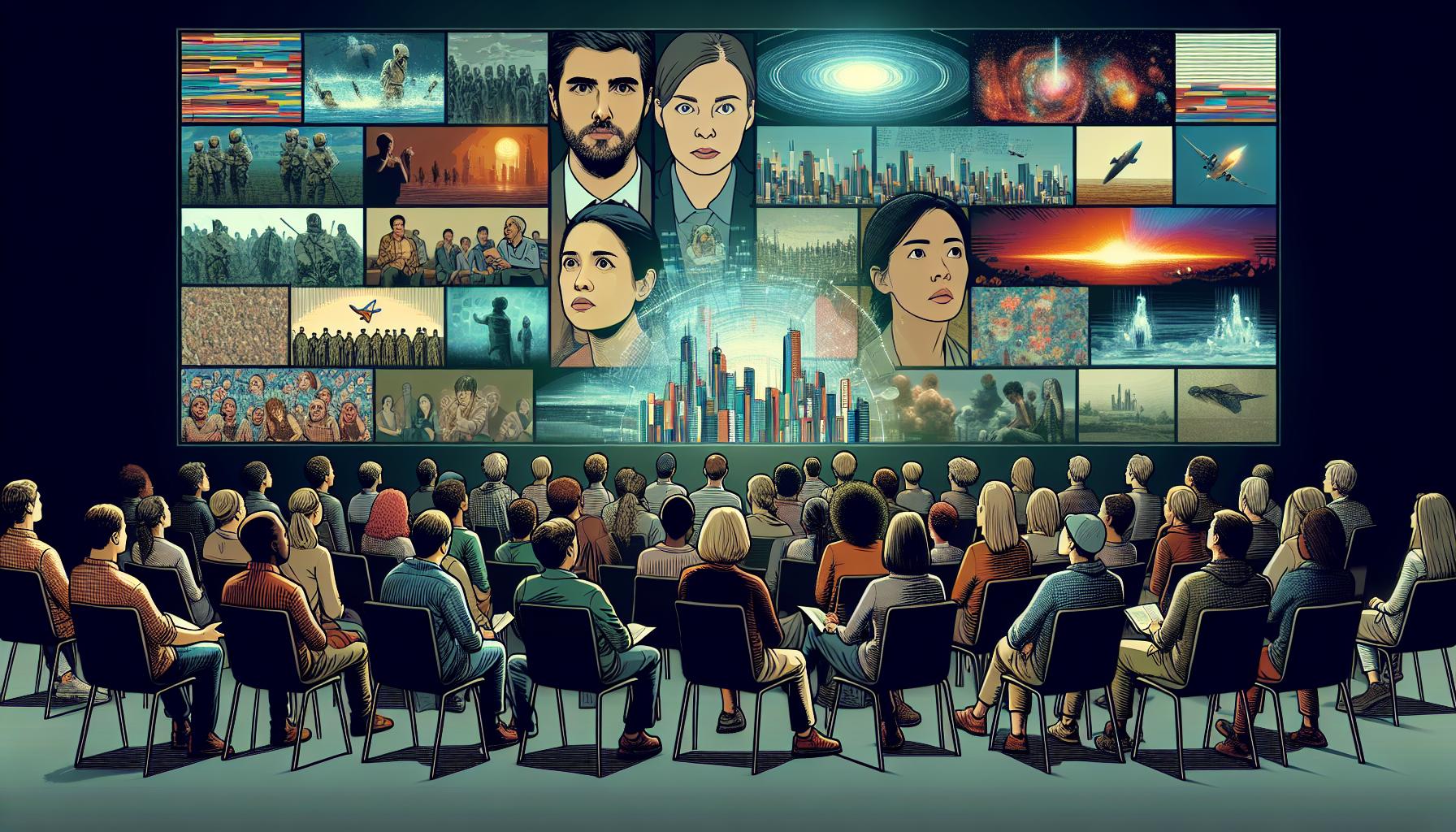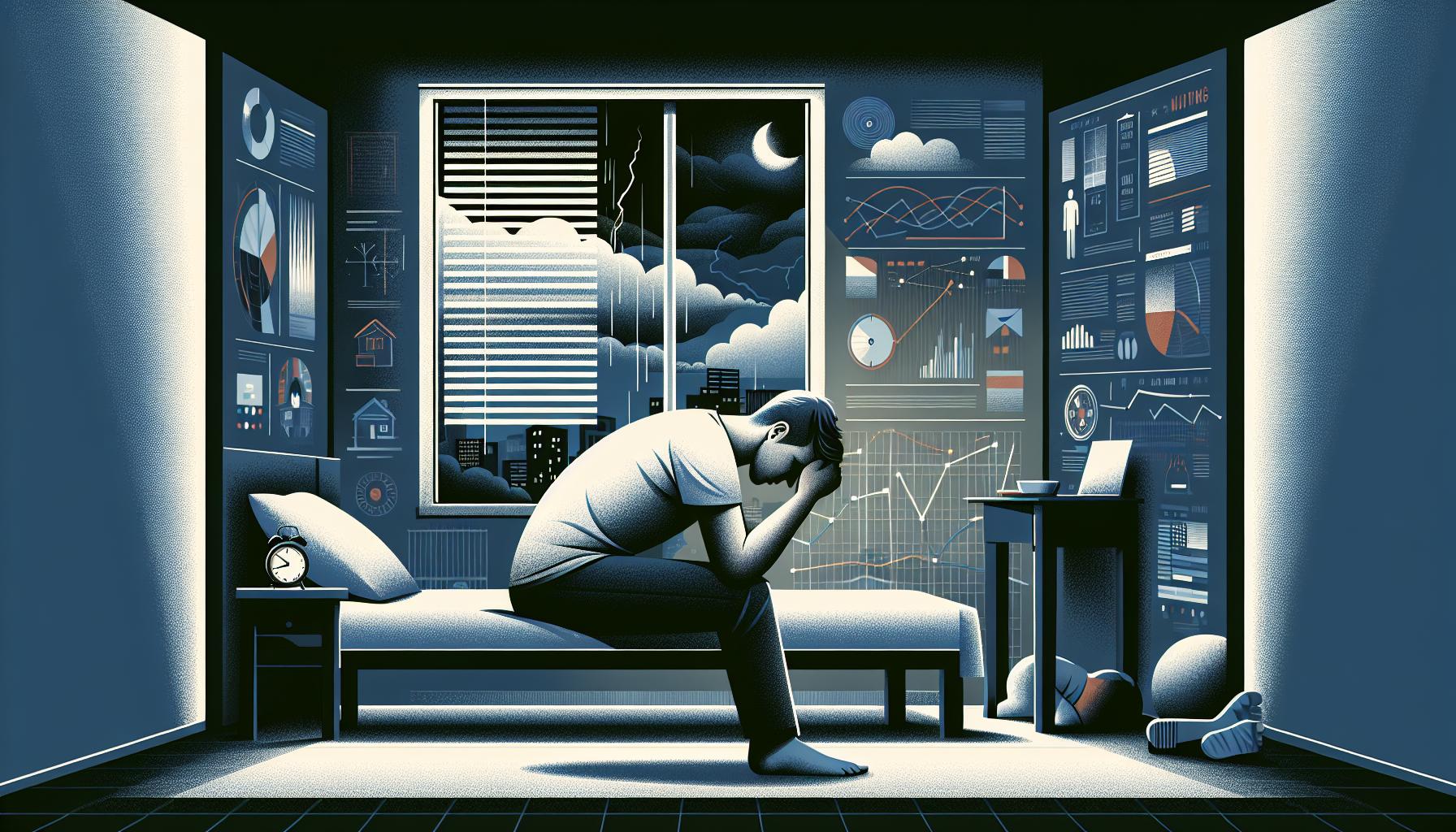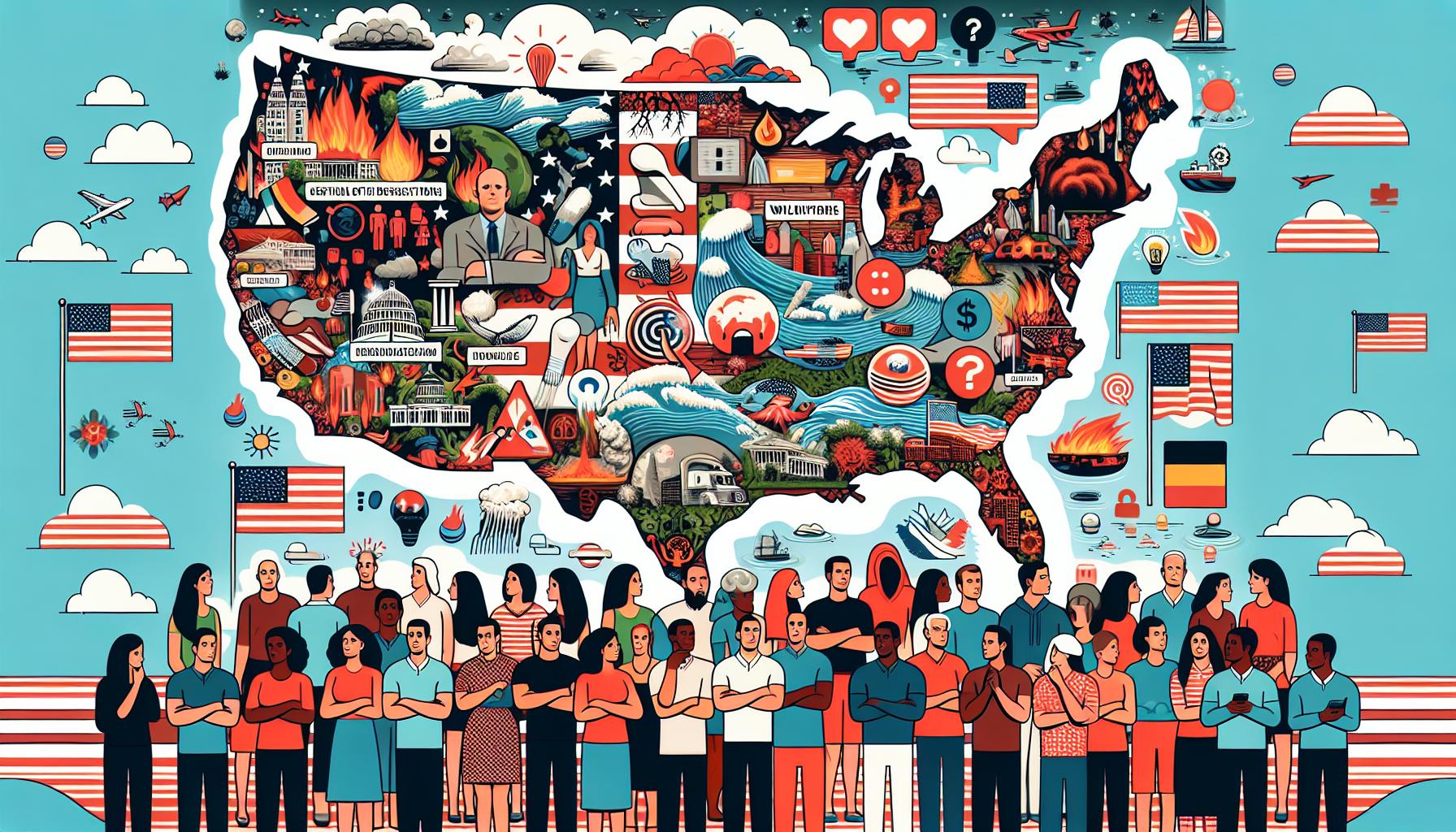Dreaming The End Of The World: Insights And Reflections
Imagine waking up from a vivid dream where the world as you know it is crumbling around you. It sounds intense, right? Dreaming the end of the world can spark a mix of emotions, from fear to curiosity, and it’s a theme that resonates with many. You might wonder what these dreams mean and why they seem to pop up when you least expect them.
Overview of Dreaming The End of The World
Dreaming about the end of the world stirs up intense emotions and sparks curiosity. These dreams often tap into deep-seated fears, making you feel a rush of anxiety or unease when you wake. You might wonder why such vivid scenarios play out in your mind, and what they really mean for you personally.
These dreams seem to come out of nowhere, yet they typically reflect your innermost thoughts and feelings. For many, they can signify major life transitions or unresolved stressors. Maybe you’re facing a big change, like starting a new job or ending a relationship. In those moments, the end-of-the-world scenario becomes a metaphor for the feelings of chaos and uncertainty in your own life.
Consider how your daily experiences shape these nightmares. The things you see online or the conversations you have with friends play a vital role in fueling your subconscious. The world feels heavy right now, with challenges like climate change or political unrest overwhelming our thoughts. These global issues often seep into your dreams, turning abstract worries into vivid, tangible experiences.
By examining these dreams, you could gain insight into what’s bothering you and work through it. Instead of fearing them, try to embrace them as a tool for self-reflection. Digging deeper into the symbolism can help you understand yourself better and may even offer solutions to life’s overwhelming moments. So, the next time the world seems to end in your dreams, take it as an invitation to explore your feelings and priorities.
Cultural Representations

Dreams about the end of the world pop up in literature, art, and media, reflecting the collective anxieties and hopes of society. These representations capture powerful themes that resonate with your experiences and the world around you.
Literature and Art
In literature, the end-of-the-world theme often serves as a backdrop for exploring humanity’s core struggles. Books like “The Road” by Cormac McCarthy plunge you into desperation and resilience in a post-apocalyptic world. You might find yourself connecting with characters grappling with loss and survival. Poetry, too, weaves these motifs beautifully. In works like T.S. Eliot’s “The Waste Land,” imagery of decay and societal collapse evokes personal reflections on your chaotic emotions and worries.
Visual art has embraced this theme, with artists like H.R. Giger showing stark imaginings of destruction and renewal. His work invites you to confront fears while uncovering beauty in despair. These pieces spark conversations about not just what it means for the world to end, but what it signifies for your own narrative—how you rise from challenges and find hope amidst chaos.
Film and Media
Movies and shows often bring dramatic interpretations of apocalyptic scenarios to life, making them more relatable to you. Classics like “Mad Max” and more recent flicks like “A Quiet Place” explore how humanity can thrive even when facing doom. They ask critical questions about survival, community, and what truly matters in your day-to-day life.
Media representations go beyond entertainment. Documentaries addressing climate change, like “Before the Flood,” show you why your actions matter on a global scale. They provoke thoughts about responsibility and the future, encouraging a practical response to contemporary fears.
In video games, titles like “The Last of Us” immerse you in gripping narratives, allowing for emotional connections through player experiences. These platforms mix storytelling and interaction, making you feel the weight of the decisions made in a crumbling world.
Overall, the cultural representations of the world’s end invite you to explore deeper questions about life. They empower you to understand your own reactions, reflect on society’s challenges, and cultivate resilience in uncertain times.
Psychological Perspectives

Dreams about the end of the world pack a wild emotional punch. They stir up feelings of fear, uncertainty, and even curiosity. Have you ever woken up from a nightmare where everything was crumbling around you? You’re not alone. These dreams hit hard and often reveal much about what’s brewing in your subconscious.
Theories of Dream Interpretation
Dream interpretation dives deep into why you might dream of apocalyptic scenarios. Freudian theory suggests that these dreams reflect inner fears or unresolved anxiety. You might be grappling with a big change—maybe you’re worried about starting a new chapter in your career or dealing with a breakup. Jungian perspectives take it further, viewing these dreams as a peek into the collective unconscious, connecting individual fears to larger societal concerns. When you think of climate change or global instability, it makes sense that those themes might seep into your dreams too.
Some experts propose practical interpretations. For example, dreaming about an apocalypse might signal a need to address overwhelming stressors in your life. Recognizing what triggers these vivid dreams can lead to insights. Did a recent news story shake you up? It could have influenced your dreams, allowing you to process feelings you haven’t fully addressed.
Common Themes in Apocalyptic Dreams
Apocalyptic dreams often showcase common themes that resonate with many people. Here are some prevalent concepts you might notice:
- Chaos and Destruction: You see cities burning or nature wildly in turmoil. This reflects feelings of powerlessness or losing control over aspects of your life.
- Survival Instincts: You can be alone, searching for shelter or food. These dreams tap into your primal instincts, showcasing resilience amid turmoil.
- Isolation: You might find yourself disconnected from others. This could reveal fears of loneliness or feeling unsupported during tough times.
- Transformation: You might witness the world ending but also see glimmers of hope, like people helping each other out. These dreams signify significant changes ahead, emphasizing growth and new beginnings.
Exploring these themes isn’t just an interesting conversation starter; it’s a heartfelt way to confront your inner world. Embrace these dreams as opportunities for reflection. They can guide you to understand your fears better and inspire you to make proactive changes in your life. You might find a deeper connection to your emotional journey, turning nightmares into a canvas for your growth and resilience.
Impact on Society

Dreaming about the end of the world hits differently for everyone. These dreams can stir up intense emotions, from fear and anxiety to a strange sense of freedom. They often reflect what’s happening around you and even inside you, connecting personal feelings to societal issues.
Collective Consciousness and Fears
You’re not alone in feeling uneasy when the world around you seems chaotic. These dreams tap into a shared anxiety that’s all too common. With climate issues, political unrest, and social change dominating headlines, it’s no surprise that global fears seep into your subconscious. When you dream of apocalyptic scenarios, it resonates with a collective consciousness that channels those worries. Think about how social media amplifies our fears, making them feel more real. This shared anxious energy can manifest in your dreams, prompting you to explore those feelings on a deeper level. Rather than avoiding these dreams, embracing them can be a powerful way to connect with what concerns you most.
Reflections of Current Events
Your dreams often create a mirror held up to current events. If you’re seeing news about natural disasters or political strife, it could very well manifest in your nighttime visions. Stressors from work, your relationships, and the world play a huge role in shaping your dreams. Reflect on any recent headlines that have caught your attention; those worries could bubble up in your subconscious. Instead of shying away from these intense dreams, consider them an opportunity for deeper self-reflection. They’re a gateway into understanding what weighs on your heart and mind.
Embrace these dreamscapes as invitations to engage with your emotions and environments. They push you to confront fears and find resilience in chaos. Looking at them this way can spark growth and inspire actions that align with your values, turning anxieties into opportunities for change.
Conclusion
Dreaming about the end of the world can be a wild ride filled with intense emotions. Instead of shying away from these dreams you can embrace them as a chance to dig deeper into your feelings and thoughts. They might just be the nudge you need to reflect on your life and the world around you.
So the next time you find yourself in an apocalyptic dreamscape remember there’s more to it than meets the eye. These dreams can help you navigate your own fears and uncertainties. By exploring what they mean you might discover new insights that lead to personal growth and resilience. Embrace the chaos and let it guide you toward understanding yourself better.
